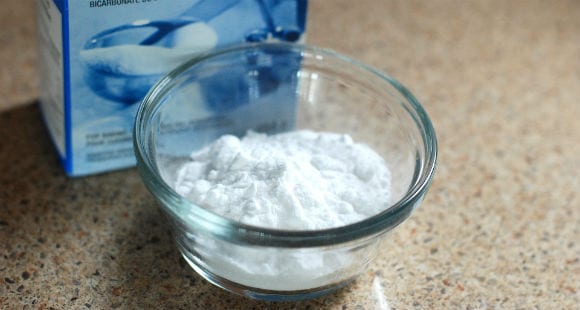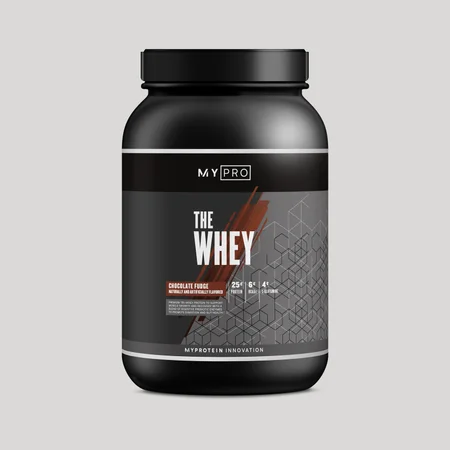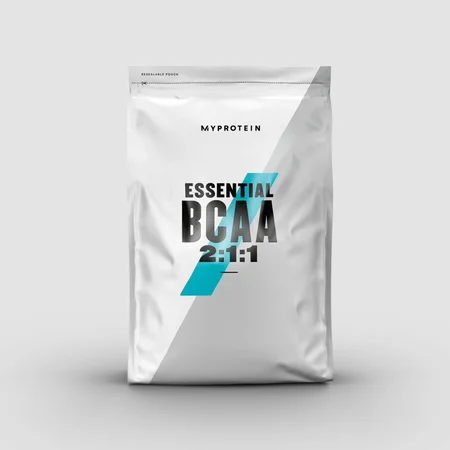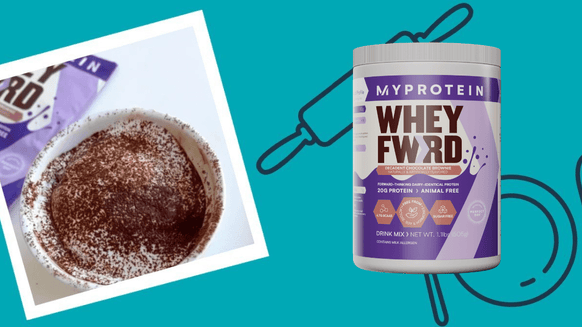
These days you hear a lot of talk about how to increase protein synthesis or the fractional synthetic rate. This is the rate at which your muscle cells are making new contractile proteins, and the general theory is that the higher this rate, the more muscle you will build. Leucine, BCAAs, whey protein, and lifting weights are just a few of the things that will stimulate protein synthesis.
Unfortunately, protein synthesis is not all that is required to build muscle. In order for you to build ANY net muscle mass, your protein synthetic rate needs to exceed the protein breakdown rate on average. This is called net protein turnover, and the formula is: Net protein turnover = protein synthetic rate - protein breakdown rate. For example, if you increase your protein synthetic rate two-fold by lifting weights, but then you also increase your protein breakdown rate two-fold (by not eating anything before or after the workout, for example), then the net protein turnover is zero and you will not build any muscle.
Your exercise session was pointless for that goal. This important fact is often neglected, even in research. However, muscle protein breakdown can significantly contribute to the amount of muscle gained over time. This is exemplified by a recent groundbreaking study showing that muscle protein synthesis was not even correlated with the total amount of muscle built on a lifting regimen for 16 weeks [9]!
Presumably, this lack of correlation was caused by the contribution that protein breakdown makes in net protein turnover. Net muscle protein turnover, not protein synthesis, is what really matters for muscle growth. There are many factors that can cause an increase in protein breakdown: bed-rest or immobilization, a high protein intake relative to carbs/fat (this causes your body to "oxidize" the amino acids for fuel instead of use them to build muscle), excessive exercise (especially endurance exercise), high chronic stress / cortisol, hypoglycemia or low blood glucose, and an "acidic" diet that causes your body to break down protein to "buffer" the acid load.
How Baking Soda can Help Reduce Protein Breakdown
There are few different ways baking soda can help to reduce protein breakdown. The most direct way is by acting as an extrinsic buffering agent to neutralize the acidifying foods you are consuming. The most acidifying foods are grains and meats, while alkalizing foods include fruits and vegetables due to the type of potassium found in these foods. Not only will reducing the acid load help to preserve your muscle mass, but alkalizing your body has also been shown to be ergogenic - it increases performance and fat oxidation [1] - as well as protect your immune system and reduce oxidative damage [2].
When you consume baking soda, or sodium bicarbonate, to alkalize your body, your urinary pH will go up (a sign of decreased acidity) but your blood pH won't change all that much. Some may claim that because the blook pH isn't changing, the baking soda is only affecting the urinary pH and not actually alkalizing the inside of the body. However, what's really going on is that the baking soda is now being used by your body to keep its blood pH in the normal range rather than the body relying on its own buffering systems, one of which are amino acids.
When you are consuming an acidifying diet, it will start to drive your blood pH down. This is bad, and you would actually be unable to live if your blood pH dropped too far, so your body quickly responds by using buffers to keep the pH from changing much. However, one of the ways it does this is by using amino acids - amino acids it can steal from your muscle cells! This increases protein breakdown over the long term (one of the ways to see this in a lab is to measure the nitrogen excretion, since amino acids are built with nitrogen in them.
Bicarbonate supplementation reliably reduces nitrogen excretion [3,4,7]). By reducing nitrogen excretion, you will be "saving" your muscle proteins from being used as a buffer and then excreted - at least in theory. The good news is we have some evidence that reducing the acid load does actually reliably spare your muscle mass. As a kind of extreme example, baking soda can reduce lean mass loss when completely fasting. Hannaford et. al. gave about 12.6 g of baking soda for 3 days to subjects who were already fasting for over 14 days(!)[5]. There results/conclusions were:
Urine ammonium nitrogen fell with this treatment (from 3.8 +/- 0.4 to 2.0 +/- 0.4 g N/g creatinine). In addition, there was a smaller fall in the rate of urea excretion (from 2.5 +/- 0.2 to 2.1 +/- 0.3 g N/g creatinine) together with a fall in the blood urea nitrogen. Therefore, it appears that ammonium excretion contributes to the negative nitrogen balance of a prolonged total fast, as assessed over a 3-day period of observation, is responsible for about one-third of the net lean body mass loss. [emphasis mine]
Besides sparing your muscle mass, latent acidosis from a high carb and protein diet can also cause a variety of disturbances in your body. I don't think I can put it better than Adel from Suppversity when he paraphrased a recent study from 2009 detailing the effects of metabolic acidosis [6]:
latent acidosis can reduce thyroid hormone production, increase protein breakdown and inhibit mytochondrial function . The latter leads to increased ROS, lactate production & proton leak, while the former entails decreases in protein synthesis, IGF-1 & cardiac output. These changes have long thought to promote the development of the metabolic syndrome by increasing inflammation and reducing the basal metabolic rate (Berkemeyer. 2009).
Furthermore, one of the ways that bicarbonate supplementation reduces protein breakdown might be by reducing potentially bioactive glucocorticoids (read: stress hormones) that help to break down muscle tissue, as it did in one study [8]. One last thing I want to point out before you run to your kitchen. There have not been any good studies directly comparing the effects of sodium bicarbonate, or baking soda, against potassium bicarbonate. It is possible that potassium bicarbonate could be a better buffer.
While this article focused on the effects of baking soda on protein breakdown, I will be releasing an article in the future on how baking soda can improve performance in many different areas. In the meantime, go ahead and sip on some baking soda water between meals (so you will still have the stomach acid necessary to digest your protein and other food) and add this tool to your toolbox on your way to monster muscle mass!

- Caciano SL, Inman CL, Gockel-Blessing EE, Weiss EP. Effects of dietary Acid load on exercise metabolism and anaerobic exercise performance. J Sports Sci Med. 2015 May 8;14(2):364-71.
- Peart DJ, McNaughton LR, Midgley AW, Taylor L, Towlson C, Madden LA, Vince RV. Pre-exercise alkalosis attenuates the heat shock protein 72 response to a single-bout of anaerobic exercise. J Sci Med Sport. 2011 Sep;14(5):435-40.
- Ceglia L, Harris SS, Abrams SA, Rasmussen HM, Dallal GE, Dawson-Hughes B. Potassium bicarbonate attenuates the urinary nitrogen excretion that accompanies an increase in dietary protein and may promote calcium absorption. J Clin Endocrinol Metab. 2009 Feb;94(2):645-53.
- Gougeon-Reyburn R, Larivière F, Marliss EB. Effects of bicarbonate supplementation on urinary mineral excretion during very low energy diets. Am J Med Sci. 1991 Aug;302(2):67-74.
- Hannaford MC, Leiter LA, Josse RG, Goldstein MB, Marliss EB, Halperin ML. Protein wasting due to acidosis of prolonged fasting. Am J Physiol. 1982 Sep;243(3):E251-6.
- High Dietary Acid Load Doubles Risk of Type II Diabetes in Lean Individuals! Causative or Corollary? Plus: Are Grains, not Meats the Main Offenders in the Modern Diet? http://suppversity.blogspot.com/2013/11/high-dietary-acid-load-doubles-risk-of.html
- Frassetto L, Morris RC Jr, Sebastian A. Potassium bicarbonate reduces urinary nitrogen excretion in postmenopausal women. J Clin Endocrinol Metab. 1997 Jan;82(1):254-9.
- Buehlmeier J, Frings-Meuthen P, Remer T, Maser-Gluth C, Stehle P, Biolo G, Heer M. Alkaline salts to counteract bone resorption and protein wasting induced by high salt intake: results of a randomized controlled trial. J Clin Endocrinol Metab. 2012 Dec;97(12):4789-97.
- Mitchell CJ, Churchward-Venne TA, Parise G, Bellamy L, Baker SK, Smith K, Atherton PJ, Phillips SM. Acute post-exercise myofibrillar protein synthesis is not correlated with resistance training-induced muscle hypertrophy in young men. PLoS One. 2014 Feb 24;9(2):e89431.











